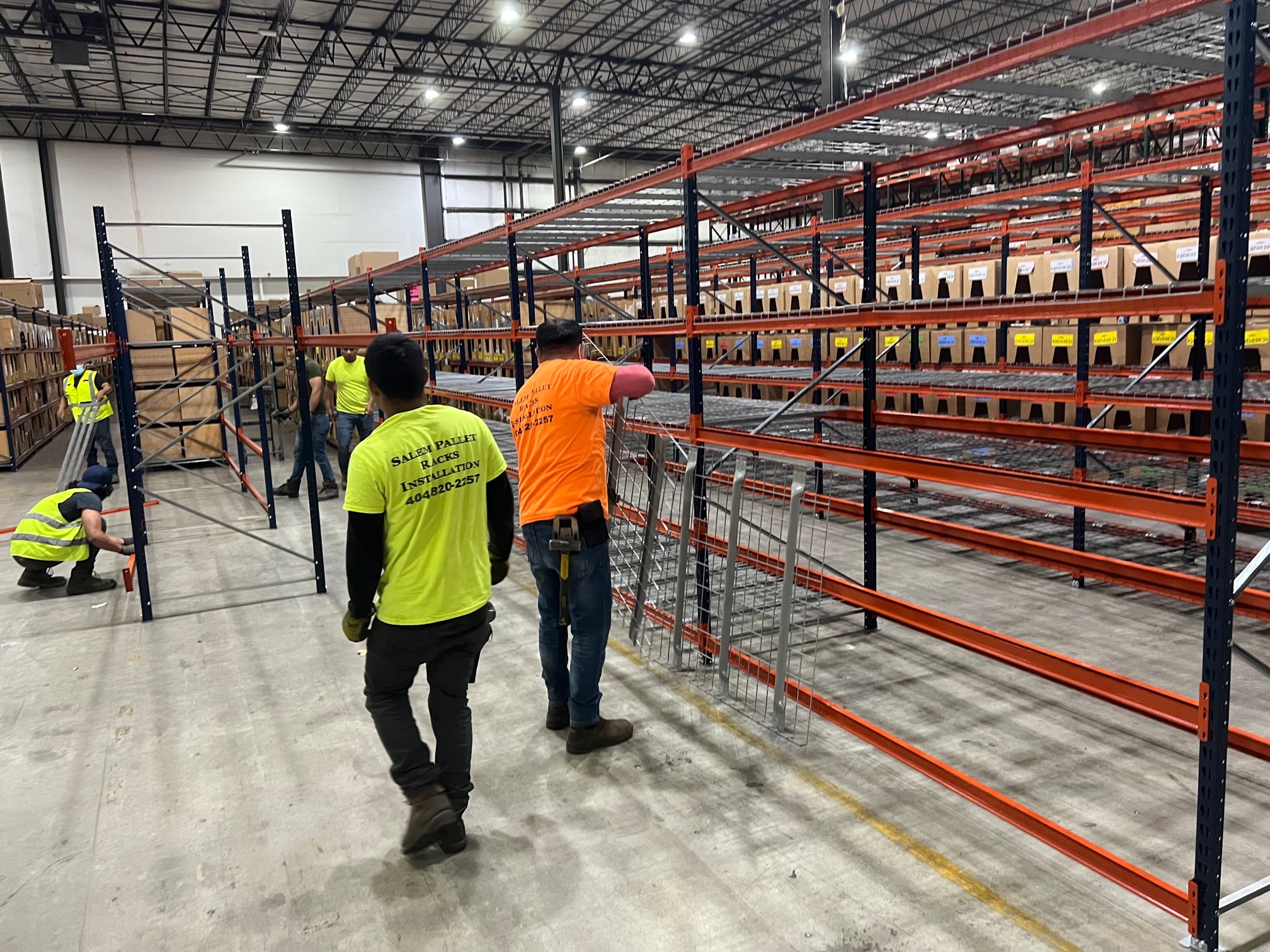Business
Defending Against The Future: Top Cybersecurity Challenges Of 2025

As we move into 2025, the digital world continues to evolve incredibly. However, with these advancements come increased cybersecurity Delray Beach risks. Cyberattacks are becoming more sophisticated and harder to detect, and organizations and individuals must stay vigilant.
This article will discuss the top cybersecurity threats expected in 2025 and how to defend against them.
1. Ransomware Attacks
Ransomware attacks involve hackers encrypting a victim’s data and demanding payment in exchange for a decryption key.
These attacks are expected to grow more sophisticated, with cyber criminals using AI and machine learning to find vulnerabilities faster and automate their attacks.
These attacks can target individuals and businesses, leading to massive financial losses, data breaches, and disruptions.
How To Defend Against Ransomware:
- Backup Your Data: Always back up your data regularly. Store backups offline or in secure cloud storage that’s not easily accessible online.
- Use Antivirus Software: Invest in good antivirus software that can detect ransomware before it can cause harm.
- Educate Your Employees: If you run a business, make sure your staff is trained to recognize phishing emails, one of the main ways ransomware is delivered.
- Enable Multi-Factor Authentication (MFA): MFA adds an extra layer of protection, making it harder for hackers to access your accounts and data.
2. AI-Powered Cyberattacks
Artificial intelligence is making its way into cybersecurity, but unfortunately, hackers are also using it. AI can automate attacks, conduct reconnaissance, and even bypass traditional security measures.
We can expect cybercriminals to use AI to create highly targeted and efficient attacks. They could mimic human behavior to evade detection or exploit weak points in security systems.
How To Defend Against AI-Powered Cyberattacks:
- Adopt Advanced Security Solutions: Use AI-based security systems to detect suspicious behavior and anomalies in real time.
- Implement Endpoint Protection: Ensure that all devices connected to your network, including smartphones and IoT devices, are protected with strong security.
- Update Regularly: Ensure that all your software, including security tools, is updated regularly to defend against new AI-driven threats.
3. Internet Of Things (IoT) Vulnerabilities
The Internet of Things refers to everyday objects connected to the Internet, like smart home devices, security cameras, and even medical equipment.
The number of connected devices is expected to increase dramatically, creating a bigger attack surface for cybercriminals.
Many IoT devices are poorly secured, making them easy targets for hackers to exploit.
How to Defend Against IoT Vulnerabilities:
- Change Default Passwords: IoT devices often come with default passwords that are easy for hackers to guess. Change them to something unique and complex.
- Update Firmware Regularly: Ensure that all IoT devices receive regular security updates to protect them from known vulnerabilities.
- Network Segmentation: If possible, segment your network so that IoT devices are isolated from critical systems to limit potential damage if one is compromised.

4. Supply Chain Attacks
Supply chain attacks occur when cybercriminals target a third-party vendor or supplier with access to an organization’s network.
In recent years, these attacks have been on the rise, and by 2025, they are expected to become even more common.
Hackers can infiltrate a trusted supplier’s system and then use that access to compromise larger organizations, sometimes without the victim even realizing it.
How to Defend Against Supply Chain Attacks:
- Vet Your Suppliers: Ensure that any third-party vendors you work with have strong cybersecurity measures.
- Monitor Your Network: Regularly monitor your network for any unusual activity, especially when working with external suppliers.
- Implement Zero Trust Security: Adopt a Zero-Trust model in which no one inside or outside the organization is trusted by default, and verification is required at every stage.
5. Social Engineering Attacks
Social engineering involves manipulating people into divulging confidential information, often through deceptive tactics like phishing or pretexting.
These attacks are expected to be more sophisticated, with hackers using advanced methods to trick individuals into clicking malicious links or giving away sensitive information.
How to Defend Against Social Engineering:
- Train Employees: Regularly train employees to recognize and report phishing attempts or suspicious communications.
- Be Cautious of Emails and Links: Don’t open attachments or click on links in emails from unknown senders.
- Verify Requests for Sensitive Information: If someone asks for sensitive information, verify their identity through a separate communication method before sharing anything.
6. Cloud Security Threats
As more businesses and individuals move their data to the cloud, the potential for cloud security threats increases.
Cybercriminals will likely exploit vulnerabilities in cloud platforms to gain unauthorized access to sensitive data or even take down critical cloud Services Delray Beach.
These threats could come from misconfigured settings, insecure APIs, or unauthorized access to cloud storage.
How to Defend Against Cloud Security Threats:
- Secure Your Cloud Account: Use strong passwords and enable multi-factor authentication for your cloud accounts.
- Monitor Cloud Access: Regularly monitor who has access to your cloud data and remove unnecessary permissions.
- Use Encryption: Encrypt sensitive data stored in the cloud to ensure that hackers cannot read the information even if they gain access.
Conclusion
The cybersecurity threats will be more advanced, automated, and harder to detect than ever before.
To protect yourself and your organization, it’s crucial to stay ahead of the curve by adopting the latest security technologies, training employees, and keeping systems up to date.
By understanding these threats and taking proactive steps to defend against them, you can reduce your risk of falling victim to cyberattacks.
At Mindcore Technologies, we understand the importance of staying vigilant and proactive when it comes to cybersecurity.
Our team of experts is dedicated to providing comprehensive solutions to help businesses protect their networks, data, and digital assets from evolving threats.
Business
Reasons Why Professional Pallet Rack Installation Services in Hill Country Matter

Storage systems are a key part of any warehouse or facility that handles goods. Pallet racks provide a structure that supports space management and stock movement. Installing them properly has a direct effect on safety, access, and rack longevity. Companies may invest in strong racking materials, but a correct setup is just as essential.
Used pallet racks in Hill Country serve many facilities looking to expand storage without buying new equipment. These systems can perform well, but only when installed with attention to load limits, level ground, and support placement. A well-installed rack adds value without raising maintenance needs or disrupting workflows.
Secures Rack Framework for Operational Use
Racks carry significant weight and demand proper installation methods. If connections are loose or beams are off balance, stress builds on the joints. Anchors need to match the floor structure, and uprights should align at the correct angles. Installers work from rack blueprints and use tested sequences to avoid weak points.
Professionals assess layout zones to avoid setting racks near uneven surfaces. They use fasteners suited for the rack model and test for load distribution. This level of setup ensures that the system remains intact under routine use without added stress on key areas.
Aligns Storage with Functional Layout Plans
Layout design determines how well workers and machines move through a space. Installing racks without considering traffic can block lift zones and shrink movement paths. Installers mark clear routes before setup and place racks where access supports fast movement and low wait times.
Second-hand pallet racks in the Hill Country include many types and sizes. Matching those racks to space requires measuring height, width, and pallet dimensions. Installers plan rack spacing around key functions like packing, unloading, and stocking to improve zone clarity and flow.
Meets Local Requirements for Rack Safety
Regional rules cover rack installations based on use, size, and expected weight loads. These rules require spacing between aisles, back-to-back rows, and vertical clearances. Installers apply these standards during setup to align with inspection rules and avoid violations.
Correct installation also considers building load limits, anchor depth, and possible impact zones. Professionals assess all rack points to confirm they meet local safety codes. Following these standards during setup supports legal compliance and improves site coordination.
Extends Rack Service Lifespan
Racks that lean or carry stress unevenly wear faster than balanced systems. Faulty placement, poor anchoring, and lack of bracing cause damage over time. Parts may bend, shift, or crack under pressure when the setup isn’t precise or grounded properly.
Installers level each rack segment and use braces to stabilize tall structures. They select rack types based on weight range and match each beam to the correct height. This kind of careful setup helps reduce early metal wear, keeping parts in better shape over more work cycles.
Supports Efficiency Through Layout and Access
A strong setup helps reduce time spent locating, pulling, or stacking items. Placement affects how staff reach items, how lifts move around racks, and how quickly orders get processed. Workers can move more directly between points when racks follow a mapped route.
Professionals place racks in ways that fit the space and stock profile. They adjust positions to create clear aisles and shift paths. With storage zones defined by rack placement, tasks move faster and avoid hold-ups between stages.
Lowers Repair and Adjustment Frequency
Solid installation reduces later maintenance needs. Misaligned parts or weak joints lead to bending, joint shift, and breakage. Fixes may require rack replacement, part swaps, or new bracing systems. These repairs take time, cost money, and slow warehouse functions. A professional setup prevents common faults from forming.
Key benefits of expert rack installation include:
- Proper anchor placement that reduces shake and slip
- Even rack height for stable pallet storage
- Tight beams that resist shift or sag
- Spacing that avoids crowding or edge impact
These actions allow the system to operate smoothly through daily warehouse tasks. They support the physical condition of each rack while helping staff handle products with control. Fewer disruptions during handling reduce the strain on equipment and personnel.
Why Hill Country Facilities Rely on Installation Pros
Used pallet racks in Hill Country offer flexible support for growing storage needs. Their structure handles frequent use when installed with care and precision. Every bolt, anchor, and rack frame plays a role in building a safe and usable system.
Installation teams provide the alignment, spacing, and layout that support long-term use. Their work adds strength to the racks and clarity to the storage plan. As storage demands shift, a strong initial setup continues to support daily output and product access.
Professional pallet rack installation plays a central role in how storage systems perform over time. Second-hand pallet racks in the Hill Country deliver value only when assembled with the right methods and layout planning. With expert setup, racks become dependable tools that support clear movement, safe stacking, and efficient daily use.
Business
Top 4 Video Game Industry Trends for 2026

In 2026, the global games business feels both bigger and more cautious, oddly calm. Studios have more players than ever and a steady rise in spending, yet every greenlight now comes with detailed questions about risk, headcount, and runway. For many studios, this mood shows up in longer planning cycles and closer scrutiny of every asset brief.
Art teams speak quietly with producers about budgets while debating whether a game art outsourcing company should take over another batch of props or a new biome. In the background, market reports talk about billions, but what matters is whether a small team can ship a solid build, keep the visual direction coherent, and still have space for one brave idea.
1. Slower volume, sharper bets
Global forecasts for 2026 point to modest expansion. Newzoo expects the games market to reach around $197 billion, up roughly 7.5% year-on-year, with PC and console leading most of the growth while mobile cools in mature regions. This slower, steadier curve pushes publishers toward safer franchises, efficient pipelines, and platforms where spending remains resilient.
For developers, this means two things at once. On one side, there is still room to pitch new systems, fresh IP, and unusual visual styles. But alongside that, middle management asks tougher questions about retention curves, monetization ethics, and post-launch maintenance. A game that looks beautiful yet arrives with shaky performance or unclear content plans feels like a luxury the market can no longer carry.
This pressure falls on production and art leadership. A strong internal team must coordinate with each external game art outsourcing company so that schedules are predictable, reuse is thoughtful, and variations stay on-model instead of drifting in costly ways. When money is tight, the price of rework rises sharply, and small misalignments in concept or shading can ripple across an entire release window.
2. Generative AI as a production tool, not a magic trick
The most discussed shift in 2026 is not another hardware cycle, but the quiet normalization of generative AI inside everyday workflows. The GDC State of the Game Industry report shows that more than half of surveyed developers now work at studios that use generative AI tools, and over one-third use them personally. These tools handle concept sketches, VO placeholders, localization drafts, and test data long before anything reaches players.
For art and tools teams, the question has shifted from “Should AI be used at all?” to “Where does it help without damaging quality, morale, or legal safety?” That question rarely has a neat answer. Some studios now ask an external vendor to deliver both human-crafted assets and AI-assisted variations, then compare performance and review pipelines in parallel. Others draw a hard line, keeping AI for internal ideation while insisting that any shipped asset must be fully traceable to human authorship and licensed sources.
There is also a cultural effect that numbers do not capture. When AI can generate thousands of variations in a few minutes, taste and restraint become more valuable. A lead artist who can calmly say “no” to ninety-nine quick options and choose the one image that fits the game’s console memory, tone, and budget becomes central to the project. The same is true for technical artists who can test AI-assisted content against performance budgets, shader limits, and platform rules before it reaches production branches.
3. Outsourcing in an era of cost control
Against this backdrop, art outsourcing feels less like a tactical escape and more like a long-term arrangement. Analysts describe a market where mobile in-app purchases alone were projected to bring in almost $130 billion in 2025, nearly half of global industry revenue, while store rules and payment models keep shifting. This mix of high revenue and high uncertainty pushes leaders to look for external partners that can flex with schedules without forcing constant team rebuilding.
Studios that work with partners like N-iX Games tend to refine their expectations in three directions. First, they ask for clear specialization: a game art outsourcing company that is trusted with stylized characters or realistic weapons is not automatically the right fit for UI, VFX, or cinematics. Second, they look for stable leadership layers rather than a rotating cast of juniors. Third, they track communication patterns almost as closely as delivery metrics, because small misunderstandings in feedback can quietly burn weeks.
A reliable art partner also feels this shift. The safest partners learn a client’s tools and constraints in detail, align their internal QA with the main studio’s test plans, and keep honest records of where AI enters their own pipeline. They make walk-throughs of files and scene setups routine, so that in-house engineers never feel surprised when they open a level or a rig.
Only one list belongs in a piece like this, and it sits where teams must make choices. When selecting or re-evaluating an external art partner for 2026, leads can:
- Map current and planned titles, then identify which work must stay in-house and which can safely move to a trusted external art team.
- Agree on AI usage rules, including which tools are allowed, how data is stored, and how credits and licensing are handled in shared projects.
- Set up small, time-boxed pilot tasks with N-iX Games or another partner to test process fit, communication rhythms, and technical alignment before scaling.
4. Skills and retention catch up with tools
Engines, AI helpers, and pipelines shift quickly, but people do not. Senior artists and engineers need years to absorb new engines and review routines, so each tooling change carries risk. Teams that treat training, mentorship, and documentation as production work cope better, and clear briefs plus shared test scenes help external partners stay aligned without exhausting the people doing the work.
***
Video game industry trends in 2026 point to steady growth, strict cost control, and wider use of AI and outsourcing. For developers, the advantage lies in calm planning, careful, honest collaboration with each game art outsourcing company, and steady respect for the humans whose judgment holds these tools together.
Business
What Every Entrepreneur Should Know Before Investing in a Car Care Franchise

Every entrepreneur wants a business that offers steady daily demand and a real path for growth. This is exactly why industries like vehicle maintenance stay so popular. Drivers rely on their cars to get to work and keep their families safe. Because people see their vehicles as vital investments, they are more keen about the essential services.
A car care franchise offers a structured way for entrepreneurs to enter this world. You get a proven business model and a roadmap from people who have done it before. Before getting started with the franchise, there are several aspects of the business you need to look into.
Check the Local Pulse
Market research might sound like a formal term, but it really just means understanding your future neighbors. Take a look at the vehicle ownership rates in your specific area. If you are in a town where every household has two or three cars, you are off to a great start.
Climate also plays a huge role here. In areas with snowy winters, salt on the road means more brake work and undercarriage care. In hot climates, air conditioning and cooling systems should be your main focus. Apart from the weather, look at how people live. Talking to local residents and visiting existing shops can reveal the local lifestyle. This early legwork ensures you do not build a business that nobody asked for.
The Real Talk on Finances
You might already be aware of the franchise fee, but that is just the beginning. You need to budget for high-quality equipment, property leases, and shop renovations. These costs can vary wildly depending on whether you are building a new facility from scratch or moving into an existing garage.
One of the most important things to plan for is your cash flow. In those first few months, your customer volume might be lower. However, your bills, such as utilities, supplies, and payroll, will arrive like clockwork. Having a safety net of extra funds ensures you can keep the lights on and your team happy while you build your local reputation.
Lean Into the Training
The training you get is the biggest perk of joining a franchise family. Most high-quality brands will give you a deep dive into how the shop runs. They will also train you how to talk to customers and how to use the management software.
This support will not just vanish after your grand opening. A solid franchise network stays on top of new technology and safety standards, so you will have the support during challenges. Plus, having a corporate team in your corner means you have someone to call the moment you run into a problem that is new to you.
Mastering the Daily Routine
Your daily operations require a mix of focus and discipline. You need to ensure that your team is ready to deliver the same high-quality service to every customer every day. As an owner, your role is more about leadership and management.
You will be juggling schedules, managing your parts inventory so you never run out of filters, and reviewing how the team is performing. Staying engaged and visible in the shop builds a culture of accountability. When your staff sees that you care about the small details, they will care about them too. This consistency will turn a one-time visitor into a loyal customer.
Understand the Agreement
A franchise agreement is a long-term relationship in a Car care franchise. Like any serious partnership, you need to know exactly what you are agreeing to. These documents outline your rights and your responsibilities. It is always a smart move to have a professional walk through the contract with you.
Pay close attention to the duration of the agreement and the rules for renewal. You also want to be very clear about your protected territory. This ensures the brand will not allow another location to open up right across the street from you.
Marketing and Making a Name
Marketing support can be a huge advantage for a new business. Most franchise systems provide you with professional branding, social media tools, and seasonal promotional plans. These resources help you look established from day one.
However, the secret to success is often your local community presence. People need to bring their vehicles to someone they recognize and trust. Combining big brand marketing with a personal touch is a winning formula for fast growth.
Investing in a vehicle service franchise is a journey that requires plenty of preparation and patience. By studying the local demand, getting your finances in order, and committing to high standards, you create a foundation that can last for decades. With the right mindset and a strong support system behind you, this path offers more than just a paycheck. It offers the satisfaction of building something lasting in your community.
-

 Finance3 years ago
Finance3 years agoProfitable Intraday Trading Advice For Novices
-

 Gaming2 years ago
Gaming2 years agoPixel Speedrun Unblocked Games 66
-

 Gaming3 years ago
Gaming3 years agoSubway Surfers Unblocked | Subway Surfers Unblocked 66
-

 Internet3 years ago
Internet3 years agoWelcome to banghechoigame.vn – Your One-Stop Destination for Online Gaming Fun!
-

 Gaming3 years ago
Gaming3 years agoMinecraft Unblocked Games 66 | Unblocked Games Minecraft
-

 Gaming3 years ago
Gaming3 years agoGoogle Baseball Unblocked | Google Doodle Baseball Unblocked 66
-

 Internet3 years ago
Internet3 years agoPremium Games Unblocked: Unleash Your Gaming Potential
-

 Gaming3 years ago
Gaming3 years agoTunnel Rush Unblocked | Tunnel Rush Unblocked 66






























